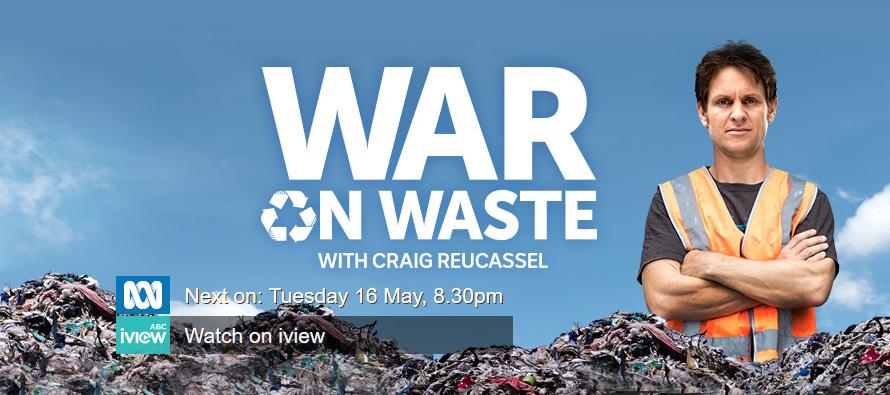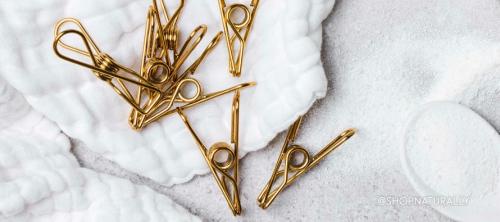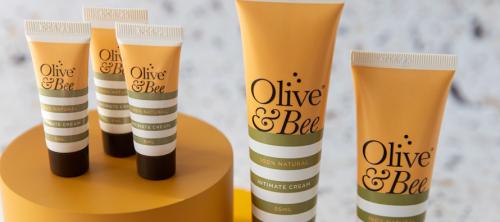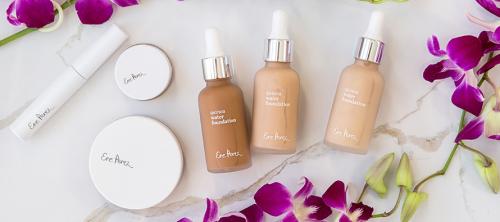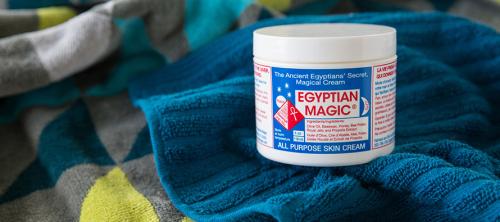ABC's War On Waste Episode Three - damn coffee cups and fast fashion
With the shell shock well and truly set in, I sat down ready to write down my stats for this week's episode. The two main features were disposable coffee cups and fast fashion. I already knew about the coffee cups but the fashion shocked me a little. I'm not guilty of this one myself, but I was blown away at how many clothes get worn once or twice and then trashed and how much junk gets 'donated' that charities need to pay to dispose of. When I see the piles of rubbish outside our local Smith Family centre, I get really mad too.
This is the last episode for now, but Craig promised to be back later in the year.
On fast fashion
- As a nation, we spend around 5 billion dollars a year on fashion
- 1/2 million tonne of it ends up in landfill anually
- This is equal to 600kg thrown away every 10 minutes
- .... or in 12 months, it fills the MCG 2 and a half times
- It takes around 2,700 litres of water to make the average cotton t-shirt
- The average person spends $2,000 a year on fashion
- 3/5ths of that is trashed within a year of purchase
On The Smith Family
As one of the largest collectors of donated clothing, one of their largest facilities gave the following stats.
- They sort 13 million kilos of donated clothing a year
- 3 to 4% they sell in their stores
- 60% are exported
- 5 to 10% are only good enough for rags
- 30% goes to waste and it costs The Smith Family 1 MILLION DOLLARS PER YEAR TO DUMP THEM
If it's not good enough to wear again, DO NOT DONATE IT. That's an absolutely disgraceful amount of money for a charity to have to spend to dump rubbish.
On disposable coffee cups
The number one take-away from this (pun intended) is that you CANNOT RECYCLE A COFFEE CUP IN AUSTRALIA AT THE MOMENT. They need to go in the bin. Why? 95% paper and around 5% polyethylene liner to keep them waterproof. This 5% means they cannot be recycled.
On the streets of Melbourne, which has around 1 million people a day in it, half of people throw their used coffee cups in the bin, the other half throw them in the recycling. It's the recycling people who are wrong.
Bio cups cannot be recycled either. They need to be collected and sent to a composting facility. That doesn't happen either. May as well buy and use a normal one. Many councils list these Bio Cups and regular cups as recyclable. They can't be recycled in Australia. It's possible some end up overseas for recycling.
If you line up all the coffee cups Aussies use in a 12 month period, you can go around the earth 2.5 times. WHAT THE ...........
For me, that's the kicker stat for the whole series. You can travel around the planet, two and a half times with just Australia's coffee cups that are thrown away. You don't have to stop buying coffee. You just have to stop taking it in a throw away cup. More and more cafes are taking any old travel mug or a barista sized reusable coffee cup like Keep Cup and many will give you a 50c discount on your coffee. You'll pay for your reusable in no time. We call carry around water bottles, this wont' take too long to catch on.
Visit www.responsiblecafes.org for a growing list of cafes that will take your reusable.
On Coles and their high fresh food standards
I'll be brief. Listening to Coles try to talk their way around sounding responsible annoyed me. They have no intention of changing their strict standards and don't believe that their customers will be happy with a slightly larger banana or one that's not quite bent enough. They are wrong. Let's just say there's a reason why I rarely buy fresh produce of any kind at a supermarket and leave it at that. I'm very lucky I live near a Harris Farm and we have a great local fruit store 2 minutes from my home that gets my business. I just take my reusable shopping bags and off I go. Harris Farm will use a cardboard box if you forget your bag. Most fruit shops would too if you asked. They have so many cardboard boxes to get rid of.
Read my recap of episode one and episode two if you haven't done so already, and just think of one small change you can make to create a little less waste on this planet.
